Fighting infant mortality in rural Mozambique
In the end, the child was born by the side of the road. His mother used a knife to sever the umbilical cord as the blood trickled into the dirt and the new father looked on from a distance, unwilling to meddle in a woman’s affair.
The couple had set off on foot under Mozambique’s blazing Savannah sun for the 15 kilometre journey on the dirt road that connected their village of Meculane and the health clinic in Katapua. They were forced to stop when the labour pains became unbearable.
“Juanito is my fifth son,” says 30-year-old Armando Sabão with pride. By his side, his wife Natália Félix cuddles the newborn in her arms and all seems well.
But it could have so easily gone wrong. Despite some improvement, Mozambique is far from reaching its Millennium Development Goals (MDG). One in ten children dies before reaching five years of age, often from treatable illnesses such as malaria, respiratory infections or diarrhoea. And with home births still a common practice in rural areas, too many women die from avoidable problems like complications, infections, convulsions and haemorrhaging.
Sabão and Félix are speaking shortly after having attended a residents meeting under a mango tree in the village to discuss the very issue of women giving birth at home. Also present were members of the health committee which consists of four residents, the village chief and traditional chief, and workers from Wiwanana, a Swiss-funded non-government organisation (NGO), who are keen to know why the couple had not used an ambulance bicycle provided by the NGO for their trip.
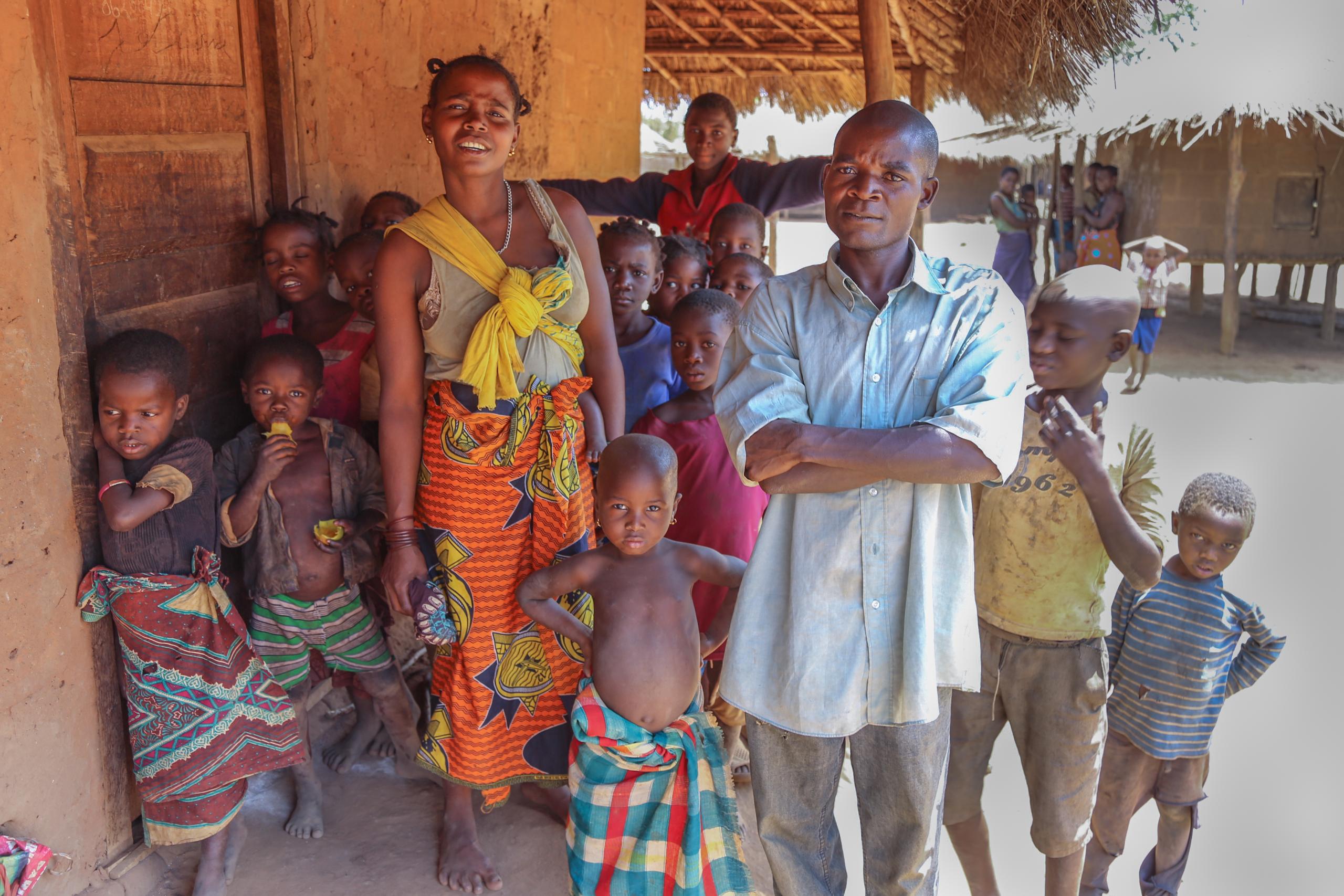
A problem of distance
In Katapua, an area that encompasses 16 villages including Meculane, the health clinic is a “type two” facility. This means it has a maternity ward and is equipped to carry out minor medical procedures. Serious cases are sent to the district hospital 60 kilometres away in Chiúre.
At the clinic, a young mother who has just given birth is lying on a bed, recovering after being operated on for complications. But her expression is one of apathy instead of the joy that usually follows these moments.
“She is HIV positive and receiving antiretroviral treatment. It is her second baby, she lost the first,” explains the 32-year-old nurse Moiane Saíde, who manages the busy clinic along with a colleague.
“We work just about 20 hours a day, seven days a week,” he says, adding that he earns about 10,000 meticals a month (CHF267).
Today Saíde is the only one on hand to assist with deliveries because his colleague is ill. In the case involving the HIV positive mother, the most important thing is to ensure the baby is not infected and Saíde worries that she will stop taking the anti-retroviral drugs.
“The people are undernourished here. With an empty stomach, the side effects of the drugs are stronger. Apart from this, we still have malaria and other diseases,” he says.
The district hospital in Chiúre is a model facility that was inaugurated with much pomp and ceremony by Mozambique’s government in early 2013. In a ward for malnourished children, hospital director Janete Tadeu asks to see the file of a one-year-old boy. The child is seriously underweight for his age, his wrinkled skin is like fine paper and his head, which has very little hair, is disproportionate to the rest of his body. Nearby, another child appears to be in an even worse condition, cries continuously.
“Malnutrition is also a cultural problem here. The people living in rural areas don’t know how to better feed themselves,” says Tadeu.
Lack of variety
The basic diet for people living in the region, be it Meculane or elsewhere, is pretty much limited to cassava. Most foodstuffs produced in the fields like almonds and cotton are sold. Fruits such as mango or papaya that are grown near huts are often left on the ground, unless they need to be sold to purchase other essentials for the family such as soap, salt, sugar or oil.
“Anaemia is practically a default condition for people here,” says Anita Huxley, a doctor with Swiss NGO SolidarMed, which is active in health issues across Africa.
“The large majority of women begin their pregnancies already anaemic. As the pregnancy develops, the foetus needs more and more iron, aggravating the mother’s condition. Often, the woman catches malaria, which worsens the situation. Sometimes, we meet women who survive with a haemoglobin level of two to three, which would be unthinkable in Europe,” says Huxley.
An Anglo-Brazilian obstetrician and gynaecologist, Huxley has worked in Mozambique for three years. While she has become used to the situation, she reiterates that the solutions are very simple.
“The recovery is quite quick when we give the children milk fortified with vitamins,” she says.
UNICEF also underlines the importance of treatment: “Chronic malnutrition does not only contribute to infant mortality, it also has negative effects on cognitive development that are irreversible.”
The other Mozambique
Far from rural areas, Mozambique’s leaders and senior officials meet with their foreign counterparts in the bar of the Polana hotel, the most luxurious one in the capital of Maputo. Built in 1922, during the time of Portuguese colonisation, its classic architecture reminds one of the grand Swiss hotels of Gstaad or St Moritz.
In the restaurant, several groups are seated around tables, discussing the statistics that will be presented at the 2nd Gas Summit which will focus on the role Mozambique’s enormous gas reserves can play in global markets. Analysts suggest the country has the capacity to become the fourth largest producer of gas in the world, behind Russia, Iran and Qatar. The government wants to begin production in 2018. In addition to gas, Mozambique holds giant reserves of petrol, coal, gold and other natural resources. Multinational corporations are flocking to the country with ambitious infrastructure and exploration projects.
A “gold rush” atmosphere is permeating the country. Construction cranes are visible in every corner in the cities. The real estate boom has been inflated by demand, which has also raised rents considerably. A three-bedroom apartment in Maputo costs around $3,000 (CHF2,600) per month to rent. The upper and middle classes are demanding better services, including medical services, and that is attracting international companies to the sector.
“We are the first company to offer health insurance that is not just aimed at company employees,” says Vânia Dique, head of the Medlife Trauma Centre, a private hospital in Maputo that has been run by a South African group since October 2013. It’s target clientele has been clearly identified.
“It is the upper and middle classes which previously went to South Africa for treatment. We offer emergency surgery, treatment of chronic diseases, radiology examination and even dentistry,” says Dique.
Mozambique has only 1,500 doctors, one for every 22,000 inhabitants, according to recent figures released by health minister Alexandre Manguele. The World Health Organization (WHO) recommends one doctor for 10,000 inhabitants, but the country’s five medical colleges do not train enough staff. A small part of the shortfall is made up by foreign doctors – around a hundred Cubans who mostly work in rural areas, as well as South Koreans and other African nationals.
Sanitation problems
As coordinator of a maternity health project, Huxley is active in a region encompassing three districts and some 400,000 people. She is used to working in difficult conditions: before arriving in Mozambique, she had practiced medicine in Sierra Leone, Cameroon and Brazil.
For her, two major issues need to be resolved in order for Mozambique to reach its MDGs: infrastructure and the education system.
“To get to the health clinic in Namogelia, a town in the Chiúre district, you need to cross a river that has no bridge. In the wet season, it is practically impossible to get there. But this problem of lack of accessibility exists across the entire country,” says Huxley.
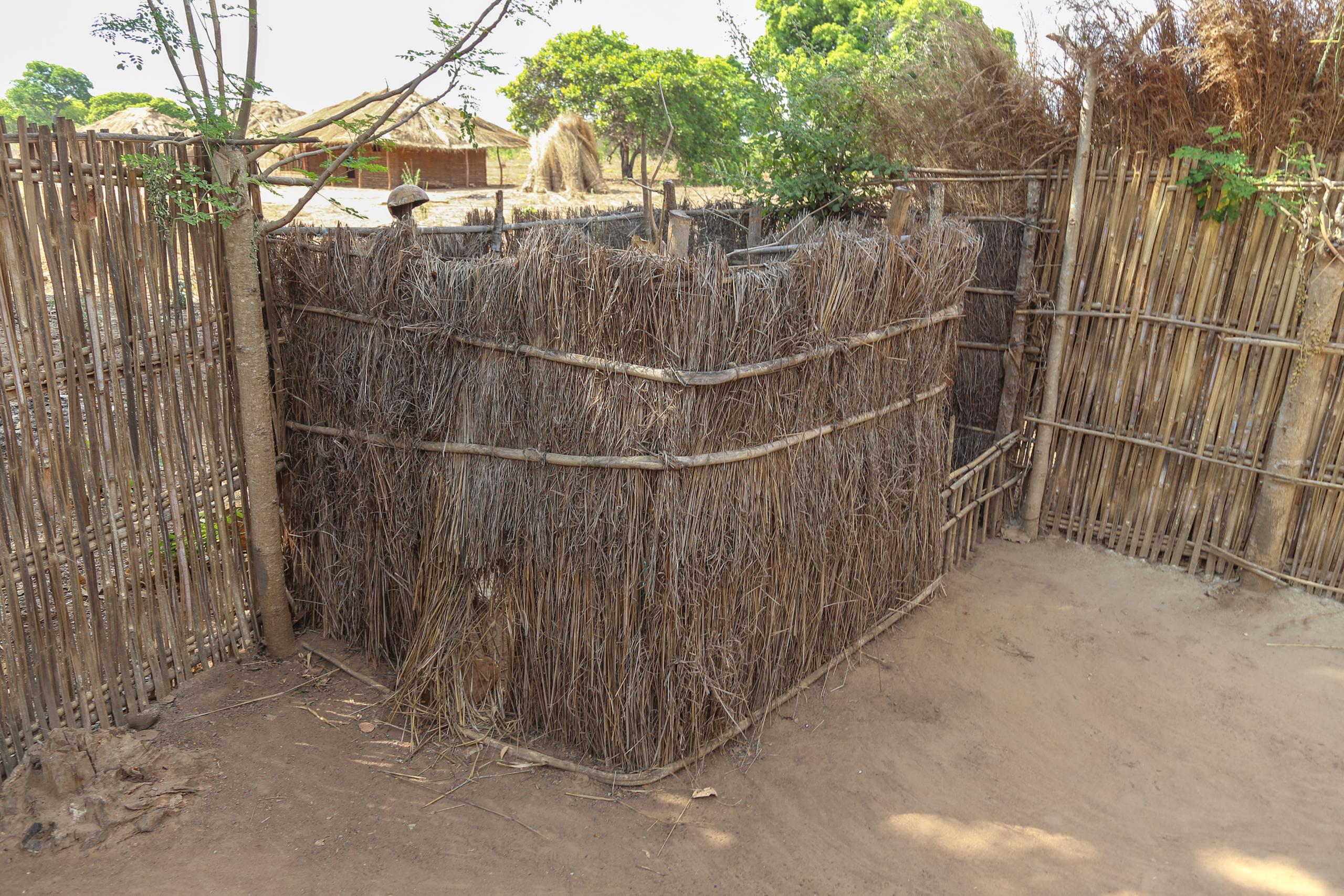
According to a study of demographic health undertaken by the government in 2011, access to potable water has improved in recent years. While in 2003, just 37% of inhabitants drank water from wells, that proportion had increased to 53% in 2011. The problem of distance has also slightly improved. The percentage of the population that spends more than half an hour to gather water – a phenomenon prevalent in rural areas but also in the overpopulated areas of urban centres – dropped from 53% in 2008 to 39% in 2011.
Despite progress, 16% of the population still drink water from rivers and around 40% practice open defecation.
“Mozambique is far from attaining the MDG, which is to reduce by half the proportion of the population that does not have permanent access to potable water and basic hygiene infrastructure,” says Huxley, while noting that cultural reasons compound the problem.
“In spite of the numerous water pumps that have been built, people often prefer to drink water from the river immediately after the rain because they say the taste is better,” she says. “For the people here, suffering from diarrhoea from time to time after having drunk unclean water is completely normal.”
Over-ambitious MDGs
On the first floor of the health ministry, located in a 1970s Soviet style building not far from the Central Hospital of Maputo, the deputy director of public health Maria Benigna Matsinhe, recognises the health difficulties her country faces.
“With regard to objective 5 – maternal health – unfortunately the mortality rate continues to be very high,” she says.
A trained doctor, the young administrator nonetheless points to a chart on the wall to highlight the progress so far.
“On objective 6, which is to combat of HIV/Aids, malaria and other diseases, we have made good progress. Malaria is showing an appreciable decline, thanks to strategies like the distribution of mosquito nets, in-home spraying of insecticides and more effective treatments. With regard to tuberculosis, the number of deaths is declining despite HIV,” she says.
Despite the shortfalls in several areas, Matsinhe says that many of Mozambique’s problems can be fixed internally. For her, there are three essential points: the birth rate, lack of information and access to health services.
Asked what she would say to the United Nations General Assembly if she was invited to justify her country’s inability to meet the MDGs, the deputy director admits that the objectives were too ambitious for the country.
“Perhaps given these first experiences, we are now in a better position to say what capacity we have to achieve the new objectives,” she says. “It is our entire system that has not worked, that’s to say the lack of human resources, the infrastructure problems and all the socio-cultural problems that hinder any improvements.”
International donors are conscious of the challenges the future holds for Mozambique. “The country is undergoing a transformation thanks to the natural resources boom and will be confronted with some important changes,” says Laura Bott, head of the Swiss Agency for Development and Cooperation (SDC) at the embassy in Maputo.
Mozambique is a priority country for the SDC. The country is set to receive some CHF160 million in 2015-2016. The funds will be invested in different projects in partnership with the Mozambique government and diverse NGOs in the areas of economic development, health and good governance. Despite economic growth, the country continues to depend heavily on outside help. About 30% of the government budget comes from international donors. If gas exports begin to generate profits for the country in 2018 – something which depends on massive investment – international aid will need to be restructured.
“The fight against poverty will continue to be an objective. But the economic development aspect will be more targeted. That means that we must think about how to accompany the growth of the country with an adapted cooperation in which the principles of good governance will continue to be fundamental,” says Bott. Bott, who is from Lausanne, has worked in Mozambique for the last three years, and is realistic about the challenges facing the country. “We knew that Mozambique would have trouble meeting all of the MDGs, especially in health,” she says, pointing out that the 16-year civil war that ravaged the country only ended in 1992. “The entire infrastructure was destroyed and they had to start again from scratch. So we cannot deny that some progress has been made.”
(Adapted by Sophie Douez)

In compliance with the JTI standards
More: SWI swissinfo.ch certified by the Journalism Trust Initiative
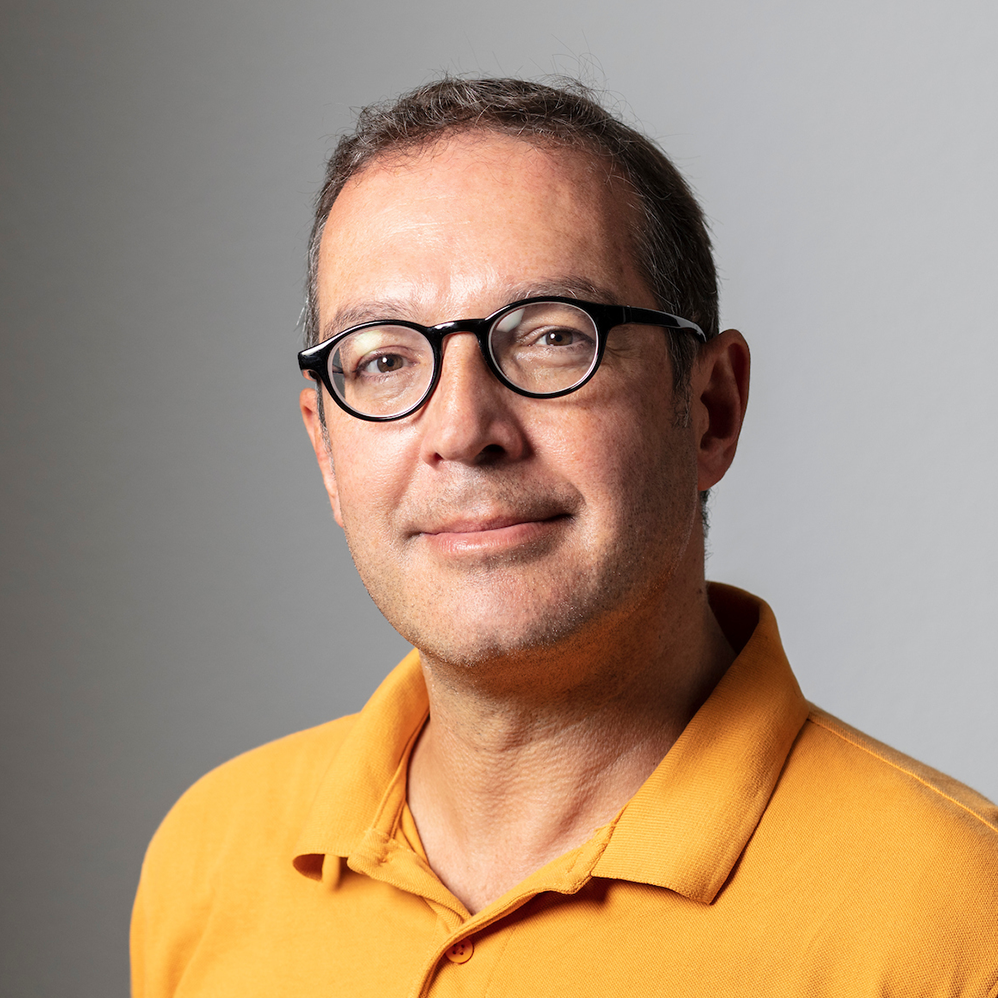
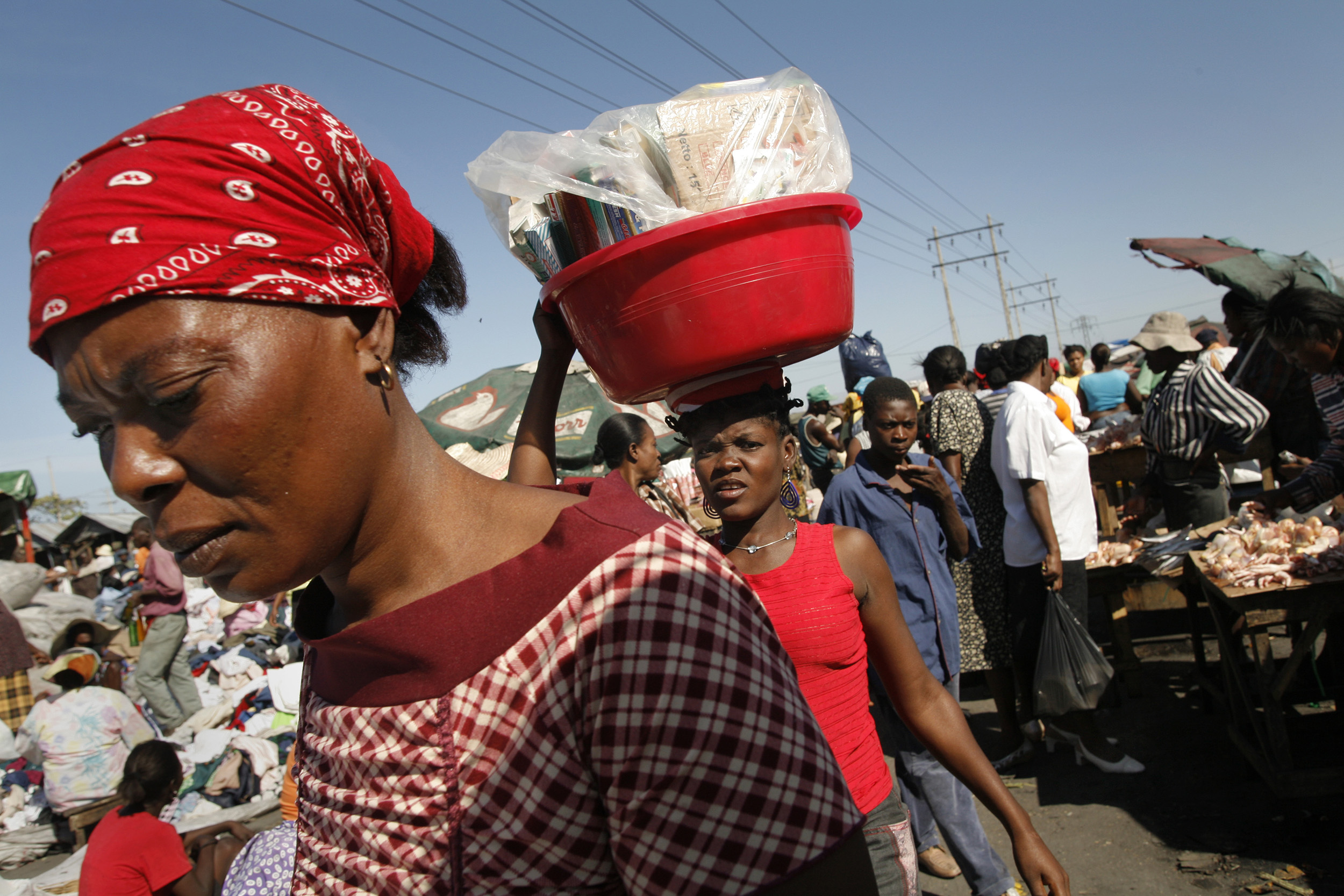

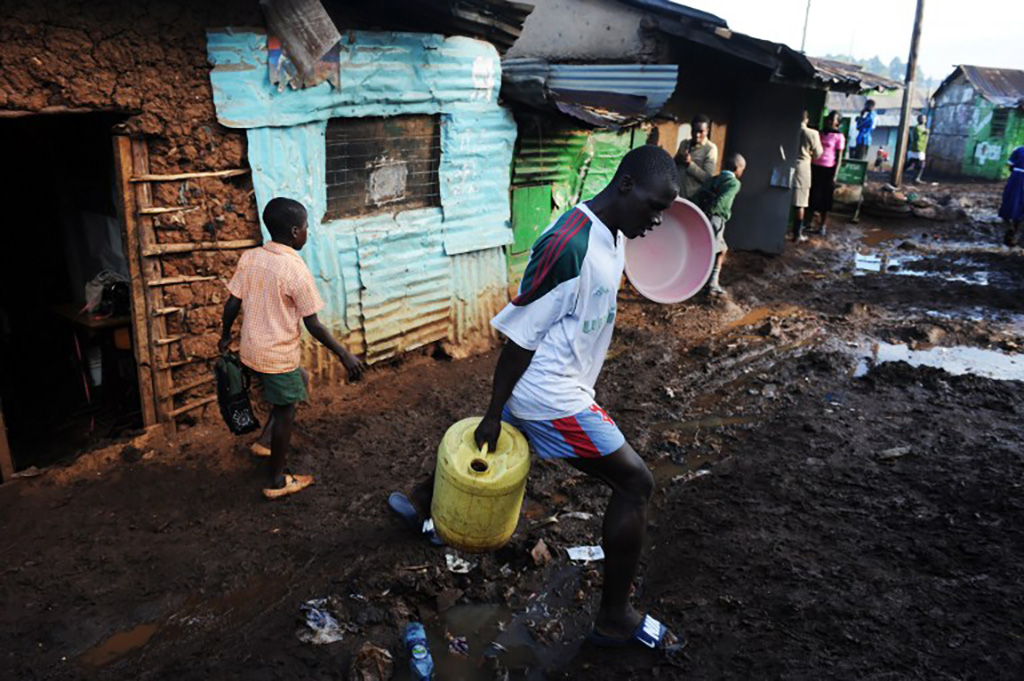
You can find an overview of ongoing debates with our journalists here. Please join us!
If you want to start a conversation about a topic raised in this article or want to report factual errors, email us at english@swissinfo.ch.